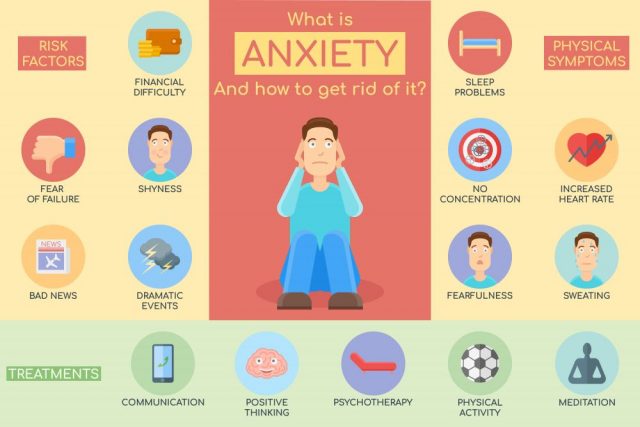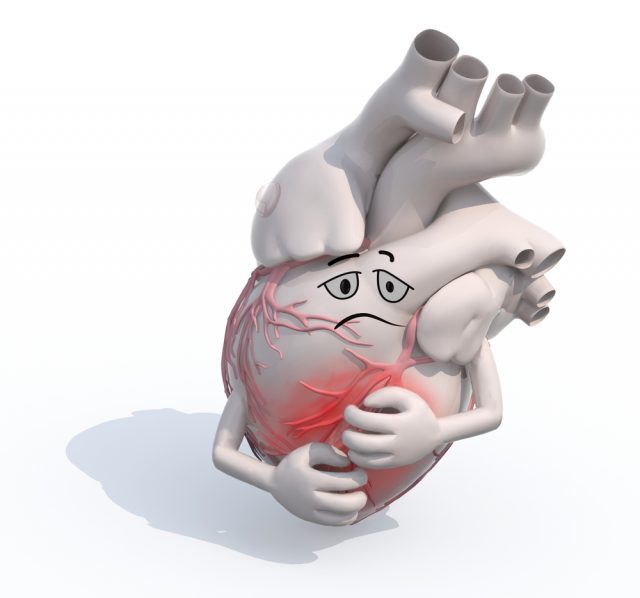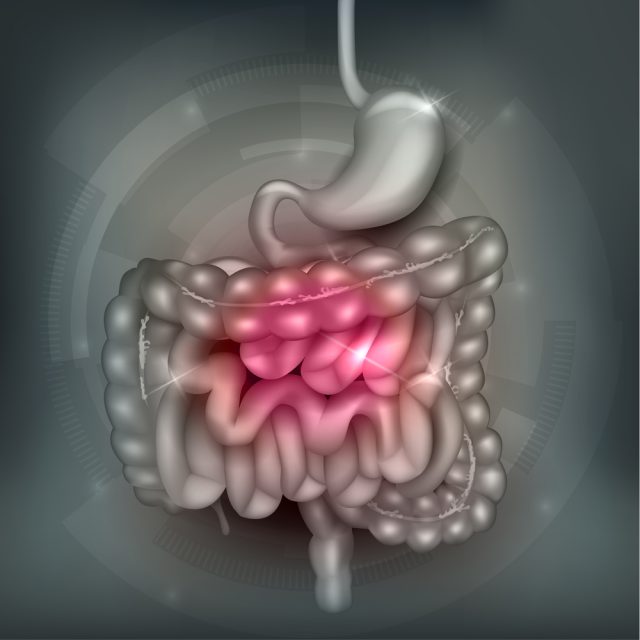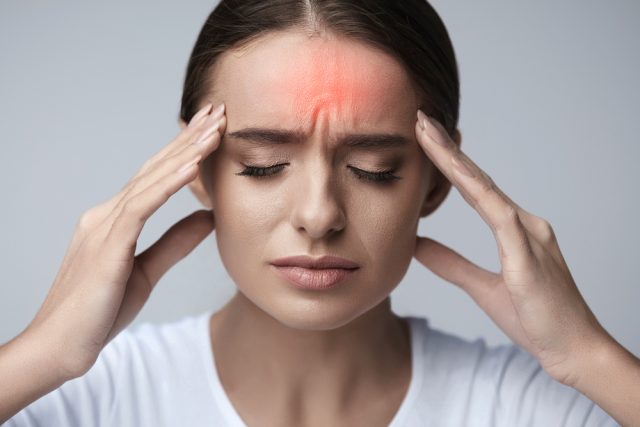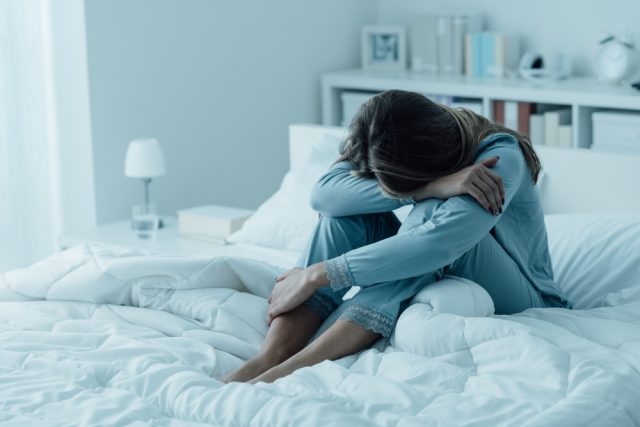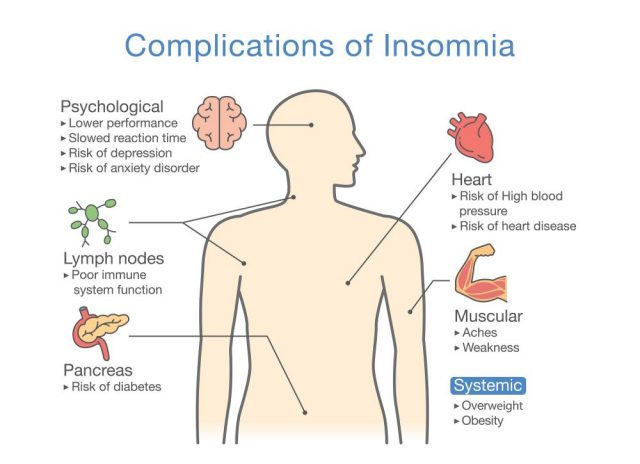Possible Complications of Anxiety Disorders
Anxiety Disorders
A little anxiety with verifying intensity, to new situations is perfectly normal, but if that anxiety starts shadowing everyday activities, it becomes crippling. Anxiety can be in the form of fear, compulsions and may or may not be associated with depression. They might even make getting up and out of bed very hard rather than creating issues with social or professional life.
Anxiety disorders constitute an umbrella of mental diseases, which ranges from phobias and, panic disorders to Obsessive-compulsive disorder (OCD) and Post Traumatic Stress Disorder (PTSD). Anxiety disorders are closely linked to depression such as its close association with PTSD.
Difference between Situational Anxiety and Anxiety Disorders
Situational or Everyday anxiety is related to specific events in life such as worry over a job interview, about social or love life, etc., Anxiety disorder, on the other hand, is a constant, relentless worry that causes anguish and interferes with daily life. Situational is a state of nervousness or a bout of sweating over an important event such as a presentation or stage performance, whereas Anxiety disorder present as a sudden full-fledged panic attack that is debilitating.
Anxiety Disorders also consist of irrational fear of people, objects, and situation that in reality poses no actual threat, along with reoccurring nightmares, about traumatic events in the past that shows no sign of relenting. According to research, Anxiety disorders tend to run in the families, and therefore include genetics as a risk factor, along with traumatic life events, and the type of personality.
Signs and Symptoms of Anxiety Disorders
The sign and symptoms in close correlation with the anxiety disorders include difficulty in breathing, heart palpitations, feeling of tightness in the chest, profuse sweating, and heightened state of panic. Other features, though not as frequent, may include nausea, vomiting, cramping in the abdominal muscles, dryness in the mouth, dizziness, easily fatigability and restless sleep or inability to sleep.
Complications of Anxiety disorders
Untreated Anxiety disorders, not only present complications concerning your mental health but also towards your physical wellbeing. The complications vary from severe mental dysfunction to life-threatening conditions. They not only affect the individuals suffering from the anxiety disorders but also their family members, partners, and close friends. These complications can be divided into physical and physiological.
Physical Complications
Physical complications encompass a variety of complications that physically harms the body and affects its optimum functioning. They include;
- Cardiac Problems;
During anxiety, because of constant fear and worry, your body is in a constant active mode, reading it to deal with a ‘fight and flight’ scenario. This constant state of vigilance leads to narrowing of blood vessels, an increase in the blood pressure, and if the arteries are already narrow due to the presence of fat deposits, it can precipitate a premature heart attack.
- Weak Immune System;
Anxiety is a near constant state of stress for the body, to deal with it a steroid hormone Cortisol is produced. Cortisol is produced by the adrenal glands of the human body. In short durations of severe stress, Cortisol helps the body fight inflammation by suppressing the immune system and the antibody response to the diseases. This response is very valuable in limiting inflammation, but in a state of constant stress, the immune systems are weakened for longer durations and are unable to fight germs, making you sick. Not only will your body be an easy target for repeated and frequent infections but it will also take much more time to recover.
- Digestive or Gastrointestinal Disorders;
The system that is most commonly affected by anxiety disorders is the gastrointestinal or the digestive system. This is due to the direct connection of the brain to the digestive system. Under stress, the brain diverts the blood supply from the noncritical organs such as the stomach and the intestines to the critical body organs such as the Heart and the brain itself. Due to a decrease in the blood supply, the activity in the digestive system slows down, and as a result of constant stress due to anxiety, the gastrointestinal system is not working at its optimum levels.
There are a number of negative effects linked to a less active digestive system and include a constantly alternating state between constipation followed by diarrhea. It may also manifest as a persistent case of bloating and gas. According to studies, anxiety has also been linked with Irritable Bowel Syndrome (IBS). IBS is a disease of unknown etiology, in which your gut is much more sensitive to food and states of stress. Though not damaging to the gut itself, it is a painful and uncomfortable condition nonetheless.
- Muscle Tension;
The constant tension in the muscles has also been attributed to the Anxiety disorders. It can involve any or all the muscles groups present in your body, ranging from muscles present in the shoulders and jaw to abdominal muscles or those in your back. This muscle tension can manifest in the form of constant tightness and pain in the muscles groups involved that has become a constant in your life.
The pain becomes debilitating and starts affecting normal physical activities. In extreme cases, it can even make the individual bedridden. The pain can be constant, or it can occur in the form of waves. It can also be associated with muscle cramping. All these symptoms vary from individual to individual.
- Headaches;
Headaches and migraines are very frequently present in close association with anxiety disorders especially Generalized Anxiety Disorder (GAD). They have also been cases where migraines have been reported immediately after a panic attack. Migraines are a subclass of tension headaches where pain usually occurs at one side of the head, and are associated with nausea, vomiting and increased sensitivity to light and noise.
Psychological Complications
Psychological Complications of anxiety can be more severe than the physical aspect. They vary from severe depression to life-threatening consequences such as suicide. They include;
- Depression;
Depression is defined as the feeling of hopelessness, sadness in life. It may also be categorized as the lack of concentration and pleasure in the previous activities. Depression and anxiety disorders often go hand in hand. There different type of depressions identified and include Major Depressive Disorder and Persistent Depressive Disorder. Depression can also be triggered by a chronic illness or a major change in the life.
Depression can manifest as changes in appetite and sleep cycle, battling constant fatigue, an inability to concentrate, excessive feelings of self-worthlessness and overwhelming guilt. Symptoms that continue to occur persistently beyond two weeks start affecting another aspect of life as well such as the social and professional life.
- Insomnia;
Difficulty in sleeping or insomnia is a side effect of symptoms related to insomnia. They include tension, a constant bombardment of thought and feeling of guilt over past events or distressing over the future. It can be of two types; a general inability to fall asleep due to a negative thought or an incapability to fall asleep after waking up from a nightmare, such as in PTSD. Insomnia can strengthen anxiety disorder by increasing stress over the individual’ inability to sleep and vice versa.
- Social Isolation;
Social isolation is a major cause as well as a major complication of anxiety disorders. A human being, by evolution, is social beings and cannot function at optimum levels with the absence of social interactions. Being alone for long durations and the lack of interactions with others give a breeding ground for negative thoughts to replicate. Not only that, but they increase the social anxiety, and an individual might eventually start having panic attacks at the very thought of interacting with others or going to crowded places. This is a vicious cycle that is very difficult to break, eventually making the individual panic at the very thought to venturing out of their home or comfort places.
- Poor quality of life;
Anxiety overshadows everything, from personal life to social and professional life. It might cloud every interaction, decision, or even lifestyle of an individual making him unable to grasp opportunities due to the fear of interactions, or any other fear brought upon by anxiety and depression. Eventually making the individual fear taking any chances to improve their life.
- Substance Abuse;
Substance abuse is very common in individuals battling anxiety. It is their way of dealing with their symptoms. It provides them with temporary relief from all the negative thoughts encircling their minds and trying to take root. Substance abuse can be in the form of alcohol, drugs, smoking or excessive eating disorders, especially in teenagers.
- Suicide;
According to research, more than ninety percent of the individual who commits suicide are suffering from mental disorders, which include anxiety in one form or the other. The risk of suicide increases exponentially when depression is also added to the mixture. A different form of anxiety disorders has different suicidal ratios, with the highest in the obsessive-compulsive disorder (OCD) and social phobias.


